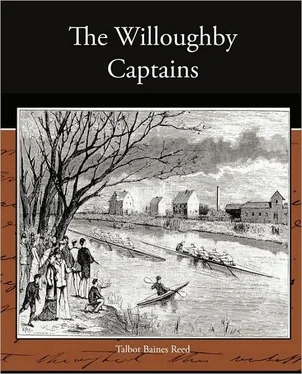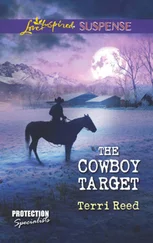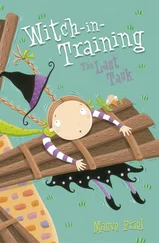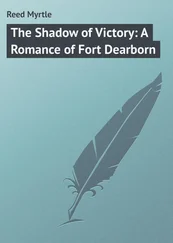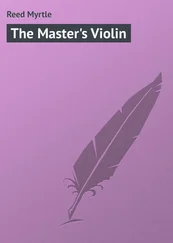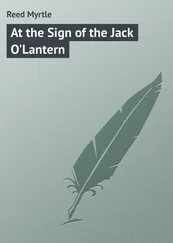“Stunning!” said Pilbury.
“Jolly grind that jar bursting up, though,” said Philpot, with a troubled countenance.
“Why, wasn’t that part of the show-off?” asked Pilbury. “Part of the show-off! No!” exclaimed Philpot. “I thought it was the best part of it all,” said Cusack. “So did I. No end of a bust up it was.”
“You see,” said Philpot, solemnly, “what I ought to have done was to dilute the oxygen with a little air first, but you fellows flurried me so I forgot all about it.”
“Jolly glad you did, or we’d have missed the bust up,” said Cusack. “I say, can’t we try now? I know the way to do it quite well.”
But this proposal Philpot flatly declined to accede to, and could only appease their disappointment by promising to perform one other experiment for their benefit.
This was of rather an elaborate nature. The operator first placed in a saucer some stuff which he explained was iodine. On to this he poured from a small bottle which smelt uncommonly like smelling-salts a small quantity of liquid, and then proceeded to stir the concoction up.
The two students were not to be restrained from offering their services at this point, and Philpot yielded. After they had stirred to their hearts’ content, Philpot ordered them to desist and let it stand a bit.
This they consented to do, and occupied the interval in taking down and smelling all the bottles within reach, with a hardihood that frightened the wits out of poor Philpot.
“Look here,” he said, when presently Pilbury suddenly dropped one bottle with a crash to the floor, and began violently spitting and choking, “you promised you wouldn’t touch anything, and I’ll shut up if you go on fooling any more. Serves you right, Pil, so it does.”
It was some time before the unfortunate Pil recovered from the results of his unlucky experiment, and even when he did, the odours from the broken bottle were so offensive that the windows had to be opened wide before the atmosphere of the room became tolerable. It wouldn’t have taken so long, only it was deemed advisable to shut the door at the same time to prevent the smell getting outside and telling tales to the school at large.
By the time this pleasant diversion was disposed of the concoction in the saucer had recovered from its stirring, and Philpot declared it was ready to go ahead with.
He therefore placed another saucer upside down upon this one, and carefully strained off between the two all the liquid, leaving only a black powder in the saucer, which he announced was iodide of nitrogen.
“Jolly rum name,” said Cusack, “what does it do?”
“You wait a bit,” said Philpot, scooping the wet powder up with the end of a knife and spreading it out on small separate pieces of paper.
“Fellow’s born a chemist,” said Pilbury, watching him admiringly; “that’s just what old Joram does at the dispensary. What’s all the spread out for?”
“To dry it,” said Philpot.
“Why don’t you stick it on the shovel and hold it over the gas?” suggested Cusack. “Jolly fag waiting till it dries itself.”
“Oh, it won’t be long,” said Philpot.
“And what’s it going to do when it’s done?” asked Cusack.
“Hope it’ll flare-up like the other,” said Pilbury.
“It ought to,” said Philpot.
“Ought it? Hurrah! I say, Cusack, what a jolly clever beggar old Phil is, isn’t he?”
“Rather,” said the admiring Cusack, perching himself on the side of the table and swinging his legs to pass the time.
“Oh,” said Philpot, condescendingly, “it only wants a little practice.”
“Rather; I mean to practise hard, don’t you, Cusack?”
Cusack said, Yes he did, and proceeded to prowl round the laboratory in a manner that made Philpot very uncomfortable.
It was a relief to all parties when the powders were at last pronounced to be dry.
“Now,” said Philpot, taking up one of the small papers gently on the flat of his hand, “we shall have to be careful.”
“That little lot won’t make half a flare,” suggested Pilbury; “let’s have two or three at once.”
So saying he lifted up one of the other papers and emptied its contents into the paper on Philpot’s hand.
“Look out,” said Philpot, “it’ll blow up.”
“Eh, what?” cried Cusack, jumping off the table in his excitement at the glorious news.
As he did so Philpot uttered a cry, which was accompanied by a loud crackling explosion, and a dense volume of blue smoke, which made the boys turn pale with terror. For a moment neither of them could move or utter a sound except Philpot, who danced round and round the room in the smoke howling and wringing his hand.
When at last they did recover presence of mind enough to inquire of their preceptor if he was injured, it was in tones of terrible alarm.
“Oh, Phil, old man, are you hurt? What was it? We’re so awfully sorry. Is your hand blown off?”
“No,” said Philpot, continuing to wring his injured hand, but otherwise considerably recovered, “it was your fault jumping off the table. The beastly stuff goes off almost if you look at it. It’s lucky it wasn’t all dry, or I might have had my eyes out!”
It was a great relief to find matters were no worse, and that in a very few minutes Philpot’s hand had recovered from the smart of the explosion. This accident, however, decided the young enthusiasts that for the present they had perhaps had enough chemistry for one lesson.
In a few days, however, they had all sufficiently got over the shock of the last afternoon’s experiments to decide on a fresh venture, and these lessons continued, on and off, during the rest of the term. It can hardly be said that by the end of the term Pilbury or Cusack knew any more about chemistry than they had known this first day. They persistently refused to listen to any of Philpot’s “jaw,” as they rudely termed his attempts at explanation, and confined themselves to the experiments. However, though in many respects they wasted their time over their new pursuit, these volatile youths might have been a good deal worse employed.
In fact, if every Welcher had been no worse employed that house would not have brought all the discredit on Willoughby which it did. As it was, everybody there seemed to follow his own sweet will without a single thought for the good of the school or the welfare of his fellows. The heads of the house, Tucker and Silk, did not even attempt to set a good example, and that being so, it was hardly to be expected those below them would be much interested to supply the deficiencies.
On the very afternoon when Pilbury and Cusack had been sitting at the feet of the learned Philpot in the laboratory, Silk, a monitor, had, along with Gilks, of the schoolhouse, a monitor too, gone down to Shellport, against all rules, taking Wyndham junior, one of their special protégés , with them.
They appeared to be pretty familiar with the ins and outs of the big town, and though on this occasion they occupied their time in no more disgraceful a way than waiting on the harbour pier to see the mail steamer come in, they yet felt, all three of them, as if they would by no means like to be seen by any one who knew them.
And it appeared as if they were going to be spared this embarrassment, for they encountered no one they knew till they were actually on their way home.
Then, just as they were passing the station door, they met, to their horror, a boy in a college cap just coming out with a parcel under his arm. To their astonishment, it proved to be no other than Riddell himself.
Riddell, who had come down by a special “permit” from the doctor to get a parcel — containing, by the way, his new boating flannels — at first looked as astonished and uncomfortable as the three truants themselves. He would sooner have had anything happen to him than such a meeting. However, as usual, his sense of duty came to his rescue.
Читать дальше
